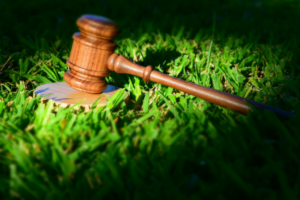Introduction:
Artificial Intelligence (AI) has rapidly transitioned from the realm of science fiction to an integral component of modern society. As AI systems become more sophisticated and integrated into daily life, they raise profound ethical and legal questions. This article delves into the challenges and considerations surrounding AI law, emphasizing the need for a comprehensive legal framework that addresses the unique attributes of this transformative technology.
1. Understanding Artificial Intelligence:
- Defining AI: At its core, AI refers to machines or software that can perform tasks that typically require human intelligence. This includes learning, reasoning, problem-solving, perception, and language understanding.
- Types of AI: From narrow AI, which is designed and trained for a particular task, to general AI, which has broad human-like capabilities, understanding the different types of AI is crucial for legal considerations.
2. Ethical Implications of AI:
- Bias and Discrimination: AI systems, particularly those involved in decision-making, can inadvertently perpetuate or amplify societal biases, leading to discriminatory outcomes.
- Transparency and Accountability: The “black box” nature of some AI algorithms can make it challenging to understand how they make decisions, raising concerns about transparency and accountability.
- Privacy Concerns: AI systems that process vast amounts of personal data can pose significant privacy risks, especially if misused or mishandled.
3. Intellectual Property and AI:
- Who Owns AI-Generated Content?: As AI systems create art, music, or even scientific research, questions arise about the ownership and rights associated with such content.
- Patenting AI Technologies: The surge in AI innovations has led to a boom in AI-related patent applications, raising questions about what can and cannot be patented.
4. Liability and AI:
- Who is Responsible for AI Actions?: If an AI system causes harm, determining liability can be complex. Is it the developer, the user, or the AI itself?
- Product Liability and AI: As AI integrates into products, from cars to medical devices, traditional product liability laws may need to evolve to address AI-specific challenges.
5. AI in the Workplace:
- Automated Decision-Making: AI systems are increasingly involved in recruitment, performance evaluations, and other HR functions. This raises concerns about fairness, transparency, and potential discrimination.
- AI and Employment Law: As AI systems replace or augment human roles, questions arise about job displacement, workers’ rights, and the future of work.
6. AI and Criminal Law:
- AI in Law Enforcement: The use of AI in predictive policing, facial recognition, and evidence analysis presents both opportunities and challenges for the justice system.
- AI-Generated Crimes: From deepfakes to AI-driven cyberattacks, emerging technologies introduce new forms of criminal activity that legal systems must address.
7. International Perspectives on AI Law:
- Global Approaches to AI Regulation: Different countries have varying approaches to AI regulation, from the EU’s focus on fundamental rights to the U.S.’s sector-specific approach.
- International Collaboration: As AI technologies transcend borders, international collaboration becomes essential to create consistent and effective legal frameworks.
8. The Future of AI Law:
- Emerging Trends: As AI continues to evolve, new legal challenges will emerge, from quantum computing to brain-computer interfaces.
- The Role of Legislators and Courts: Adapting to the rapid pace of AI innovation requires proactive legislation and informed judicial decisions to ensure that the law remains relevant and effective.
Conclusion:
Artificial Intelligence, with its transformative potential, introduces a myriad of ethical and legal challenges that society must navigate. As we stand at the cusp of an AI-driven era, the law’s role becomes pivotal in ensuring that AI technologies are developed and used responsibly, ethically, and for the benefit of all. Balancing innovation with regulation, while ensuring that fundamental rights and values are upheld, is the defining challenge of AI law in the 21st century.



